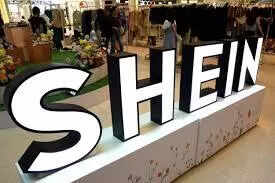
For decades, Le Bazar de l’Hôtel de Ville, fondly known as BHV has stood as one of Paris’ most beloved shopping landmarks. A place where Christmas window displays light up childhood memories and generations stroll through aisles of fashion, décor, and history. But this November, the charm of BHV has been overshadowed by controversy and it’s not about festive decorations.The storm began when Chinese fast-fashion giant Shein announced it would open its first permanent store inside BHV on November 1. What could have been a simple business move has instead sparked nationwide outrage in France, a country that sees itself as the guardian of haute couture, craftsmanship, and conscious style.

The partnership came shortly after BHV’s acquisition by Société des Grands Magasins (SGM), the real estate group that also oversees several Galeries Lafayette stores. According to SGM, bringing Shein into BHV was a strategic move to attract a younger, digital-savvy audience. But for many Parisians, the decision feels like a cultural mismatch, almost like inviting fast food to a Michelin-star table.Paris, after all, is where fashion is art. And to see a global fast-fashion powerhouse known for mass production enter one of the city’s most iconic spaces feels to many like an erosion of that legacy.The news has already inspired resistance. In the 11th arrondissement, a movement called Une Autre Mode Est Possible (“Another Fashion Is Possible”) has turned its creative space into a hub for slow fashion. Designers and activists are offering workshops on upcycling, garment repair, and ethical production, proving that style can coexist with sustainability.Leading the opposition is Arielle Lévy, founder of the movement, who launched a petition demanding Shein’s exclusion from BHV. Within days, it gained momentum and now has over 100,000 signatures.Even City Hall couldn’t stay silent. Paris Mayor Anne Hidalgo strongly condemned the move, calling Shein’s entry “a betrayal of Parisian values.” Her criticism echoes the sentiments of many who believe the brand’s alleged environmental damage and labour violations have no place in the global capital of luxury and ethics.

Investigations, including one by Swiss watchdog Public Eye in 2024, claimed that Shein factory workers in southern China were clocking up to 75-hour weeks under poor working conditions. Over the years, Shein has also been accused of promoting throwaway culture, flooding the market with cheap, short-lived garments while contributing to textile waste on a massive scale.French lawmakers are now taking serious steps to curb the fast-fashion frenzy. Earlier this year, the Senate approved a bill targeting ultra-fast fashion companies. The proposed law would ban their advertisements, penalise influencers who promote them, and introduce an environmental tax that could reach €10 per garment by 2030. Regulators have also imposed a hefty €40 million fine on Shein for misleading advertising practices.For the French, the debate runs deeper than business, it’s philosophical. On one side is Shein, representing affordability, accessibility, and relentless speed. On the other stands France’s time-honoured tradition of thoughtful design, meticulous craftsmanship, and respect for artisanship.As BHV gets ready to host Shein beneath its storied roof, Parisians are left asking a fundamental question, has fashion lost its soul?Because in the city that gave the world Dior, Chanel, and Saint Laurent, fashion has always been more than fabric and thread – it’s identity, artistry, and conscience stitched together. And this latest chapter proves that what Paris wears still matters, not just to the world of fashion, but to the values it represents.





